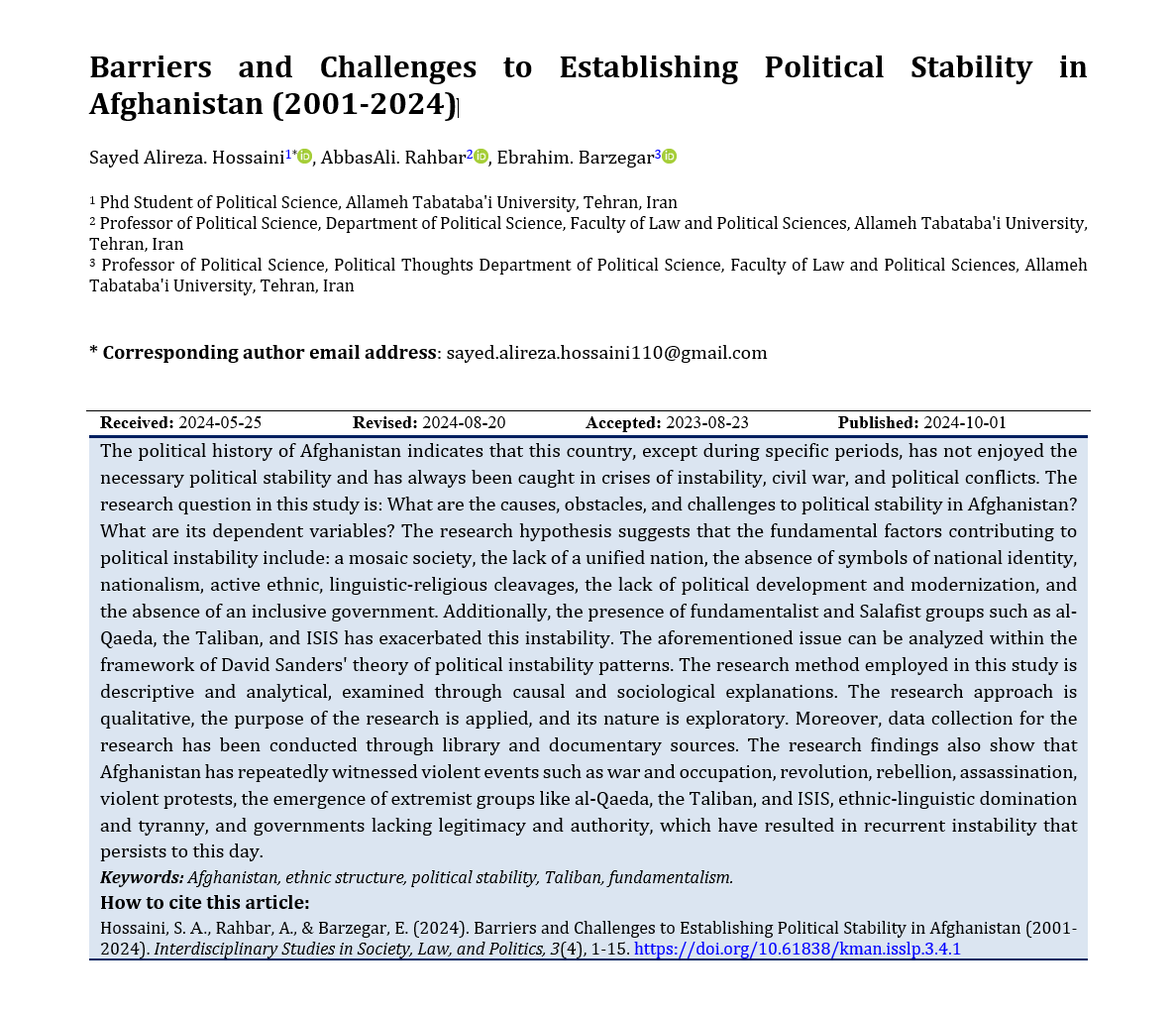Barriers and Challenges to Establishing Political Stability in Afghanistan (2001-2024)
Keywords:
Afghanistan, ethnic structure, political stability, Taliban, fundamentalismAbstract
The political history of Afghanistan indicates that this country, except during specific periods, has not enjoyed the necessary political stability and has always been caught in crises of instability, civil war, and political conflicts. The research question in this study is: What are the causes, obstacles, and challenges to political stability in Afghanistan? What are its dependent variables? The research hypothesis suggests that the fundamental factors contributing to political instability include: a mosaic society, the lack of a unified nation, the absence of symbols of national identity, nationalism, active ethnic, linguistic-religious cleavages, the lack of political development and modernization, and the absence of an inclusive government. Additionally, the presence of fundamentalist and Salafist groups such as al-Qaeda, the Taliban, and ISIS has exacerbated this instability. The aforementioned issue can be analyzed within the framework of David Sanders' theory of political instability patterns. The research method employed in this study is descriptive and analytical, examined through causal and sociological explanations. The research approach is qualitative, the purpose of the research is applied, and its nature is exploratory. Moreover, data collection for the research has been conducted through library and documentary sources. The research findings also show that Afghanistan has repeatedly witnessed violent events such as war and occupation, revolution, rebellion, assassination, violent protests, the emergence of extremist groups like al-Qaeda, the Taliban, and ISIS, ethnic-linguistic domination and tyranny, and governments lacking legitimacy and authority, which have resulted in recurrent instability that persists to this day.
Downloads






